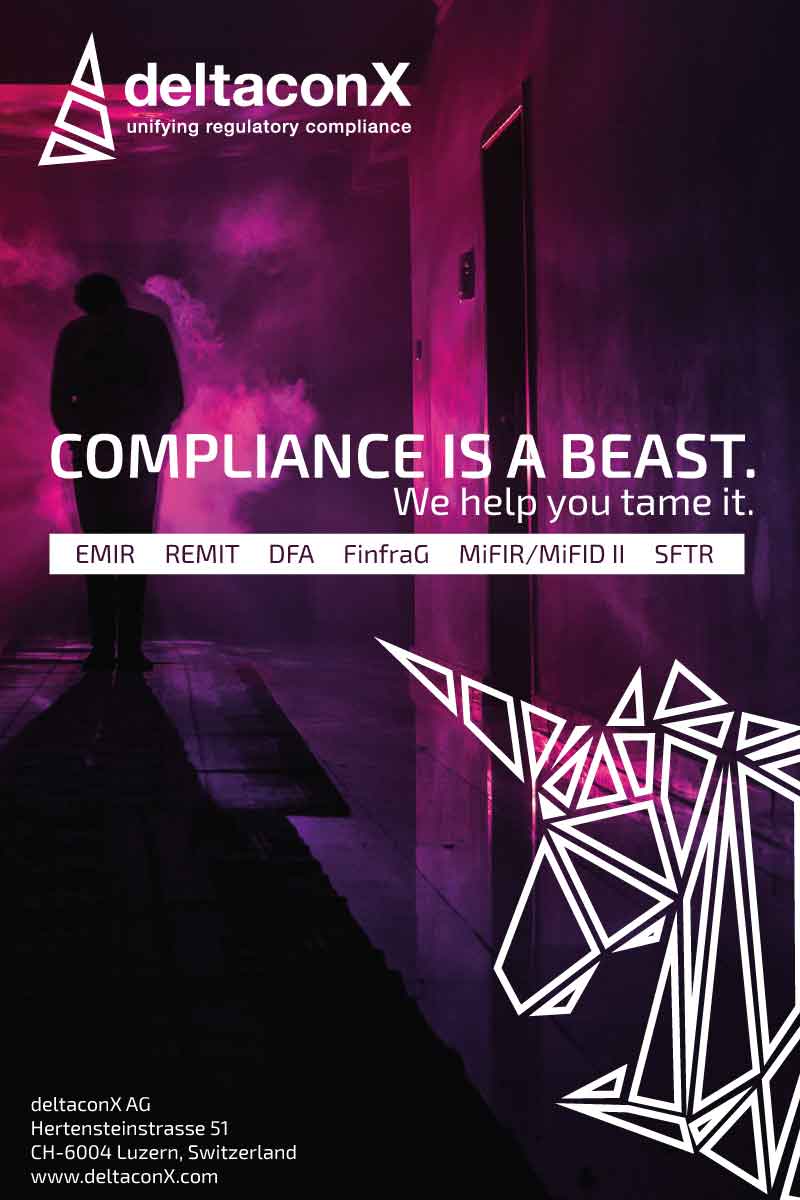Clifford Chance publishes crypto asset custody research paper
21 June 2023 US
 Image: MaximB/stock.adobe.com
Image: MaximB/stock.adobe.com
Clifford Chance has released a paper discussing options for crypto asset custody and outlining areas of legal and regulatory uncertainty.
The report, entitled ‘Custody of Crypto assets: Moving towards industry before practice’, reflects that insolvency proceedings for crypto service providers have heightened the importance for clients of custodian wallet providers to know what claim they have over their crypto assets.
While there are currently well-established law and market practices for the provision of custody to securities and traditional assets, whether these structures apply to crypto assets varies across jurisdictions. Although there are common themes, there is no globally consistent regulatory framework for crypto asset custody. For custodian wallet providers with an international scope, this is a legal and practical challenge.
In common law jurisdictions, “crypto assets should be capable of being held on trust,” the report states, with custodian wallet providers holding assets in a way that protects clients in the event of that provider’s insolvency.
Providers operating in jurisdictions with this system must fulfil certain obligations and fiduciary duties, and often must segregate custodial assets from their own in order to maintain beneficiary identifiability.
However, despite these similarities not all jurisdictions with common law have followed the same path. For example, Jersey is currently regulating crypto asset-related services in its existing financial services framework, while Singapore is amending its payment services legislation to bring custodial services for digital payment tokens under regulation.
Even jurisdictions without specific supervisory frameworks may have registration and licensing requirements for custodial wallet services. With consideration to anti-money laundering (AML), in the UK providers are subject to anti-money laundering requirements. Additionally, the House of Lords recently approved the Financial Services and Markets Bill, by which crypto will be treated as a regulated activity in the country. In Jersey, they must register as virtual asset service providers to ensure AML compliance.
The US differs from other common law jurisdictions due to its complex legal landscape, with state and federal laws influencing custodial relationships and requirements changing in accordance with individual circumstances. The country currently has no comprehensive regulatory framework for crypto assets but is instead adopting a ‘regulation-by-enforcement’ approach.
In civil law jurisdictions, legal and regulatory structures for crypto asset custody tend to be more varied, according to the report. In some regions crypto-specific frameworks are in place or are being developed. Through these myriad approaches, there are greater differences between their legal structures and licensing requirements, the report says.
In the UAE, different regions are developing regulations at different paces. Although some UAE-wide regimens are being adapted to suit crypto assets, in the jurisdiction’s financial free zones regulatory frameworks are being specifically introduced. Elsewhere, the Netherlands regulates crypto asset custodial services providers solely through Dutch contract law-governed AML laws.
In the EU, crypto asset regulation is set to change following the implementation of the Markets in Crypto-assets regulation (MiCA), scheduled to go live on 29 June 2023 and applying to custodian wallet providers from 30 December 2024.
Aiming to improve consistency across the EU, MiCA supplies a broad regulatory framework including licensing requirements for crypto asset service providers. For wallet providers specifically, MiCA introduces segregation and record-keeping requirements.
Clifford Chance’s report draws attention to remaining challenges around the regulation, including the fact that segregation depends on national civil, property and insolvency law, proving difficult for jurisdictions that have not yet characterised crypto assets. In addition, the terminologies of different law regimes are often not aligned.
In the US, the U.S. Securities and Exchange Commission has proposed amendments to the Investment Advisers Act of 1940’s ‘Custody Rule’. This would expand the rule to cover all client assets, including crypto assets, and would require, among other changes, asset segregation. This could have a significant financial impact on wallet custodian providers by way of legal fees and compliance costs, which would likely be passed on to clients, the report says. “This may be commercially unsustainable and ultimately may lead to a reduction in the number of firms offering custodial wallet services in the US,” it suggests.
The report, entitled ‘Custody of Crypto assets: Moving towards industry before practice’, reflects that insolvency proceedings for crypto service providers have heightened the importance for clients of custodian wallet providers to know what claim they have over their crypto assets.
While there are currently well-established law and market practices for the provision of custody to securities and traditional assets, whether these structures apply to crypto assets varies across jurisdictions. Although there are common themes, there is no globally consistent regulatory framework for crypto asset custody. For custodian wallet providers with an international scope, this is a legal and practical challenge.
In common law jurisdictions, “crypto assets should be capable of being held on trust,” the report states, with custodian wallet providers holding assets in a way that protects clients in the event of that provider’s insolvency.
Providers operating in jurisdictions with this system must fulfil certain obligations and fiduciary duties, and often must segregate custodial assets from their own in order to maintain beneficiary identifiability.
However, despite these similarities not all jurisdictions with common law have followed the same path. For example, Jersey is currently regulating crypto asset-related services in its existing financial services framework, while Singapore is amending its payment services legislation to bring custodial services for digital payment tokens under regulation.
Even jurisdictions without specific supervisory frameworks may have registration and licensing requirements for custodial wallet services. With consideration to anti-money laundering (AML), in the UK providers are subject to anti-money laundering requirements. Additionally, the House of Lords recently approved the Financial Services and Markets Bill, by which crypto will be treated as a regulated activity in the country. In Jersey, they must register as virtual asset service providers to ensure AML compliance.
The US differs from other common law jurisdictions due to its complex legal landscape, with state and federal laws influencing custodial relationships and requirements changing in accordance with individual circumstances. The country currently has no comprehensive regulatory framework for crypto assets but is instead adopting a ‘regulation-by-enforcement’ approach.
In civil law jurisdictions, legal and regulatory structures for crypto asset custody tend to be more varied, according to the report. In some regions crypto-specific frameworks are in place or are being developed. Through these myriad approaches, there are greater differences between their legal structures and licensing requirements, the report says.
In the UAE, different regions are developing regulations at different paces. Although some UAE-wide regimens are being adapted to suit crypto assets, in the jurisdiction’s financial free zones regulatory frameworks are being specifically introduced. Elsewhere, the Netherlands regulates crypto asset custodial services providers solely through Dutch contract law-governed AML laws.
In the EU, crypto asset regulation is set to change following the implementation of the Markets in Crypto-assets regulation (MiCA), scheduled to go live on 29 June 2023 and applying to custodian wallet providers from 30 December 2024.
Aiming to improve consistency across the EU, MiCA supplies a broad regulatory framework including licensing requirements for crypto asset service providers. For wallet providers specifically, MiCA introduces segregation and record-keeping requirements.
Clifford Chance’s report draws attention to remaining challenges around the regulation, including the fact that segregation depends on national civil, property and insolvency law, proving difficult for jurisdictions that have not yet characterised crypto assets. In addition, the terminologies of different law regimes are often not aligned.
In the US, the U.S. Securities and Exchange Commission has proposed amendments to the Investment Advisers Act of 1940’s ‘Custody Rule’. This would expand the rule to cover all client assets, including crypto assets, and would require, among other changes, asset segregation. This could have a significant financial impact on wallet custodian providers by way of legal fees and compliance costs, which would likely be passed on to clients, the report says. “This may be commercially unsustainable and ultimately may lead to a reduction in the number of firms offering custodial wallet services in the US,” it suggests.
NO FEE, NO RISK
100% ON RETURNS If you invest in only one asset servicing news source this year, make sure it is your free subscription to Asset Servicing Times
100% ON RETURNS If you invest in only one asset servicing news source this year, make sure it is your free subscription to Asset Servicing Times



